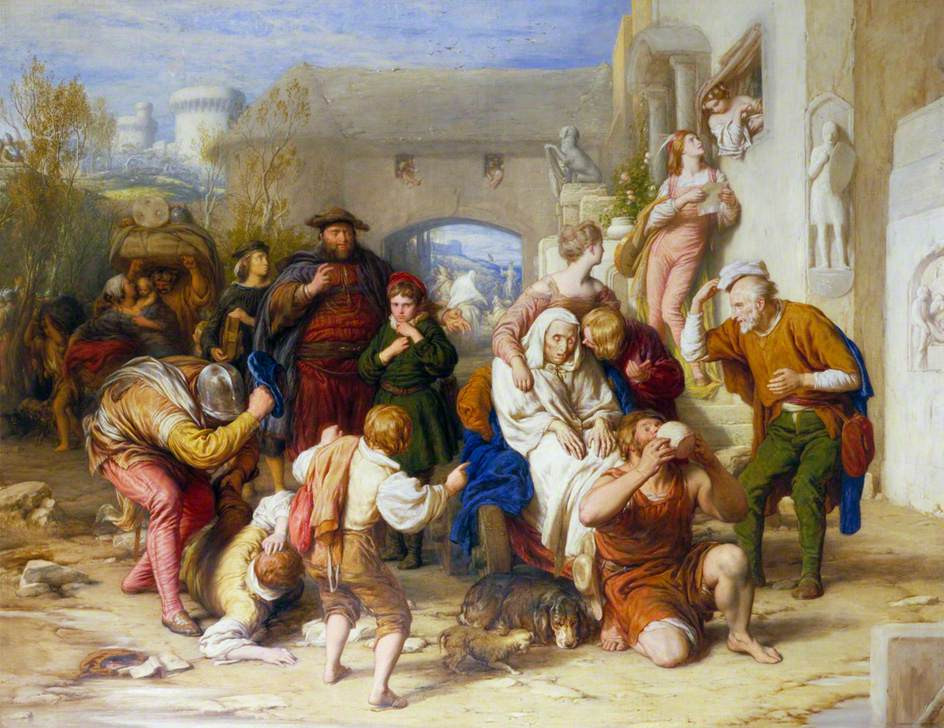I’ve been working since I was like 12, makin’ bank (sort of) and trying to figure out what I want to do, but I’ve never had an office job before.
All my jobs have been on my feet, behind the scenes or backstage, erratic, and mostly for free. I’ve babysat screaming toddlers, swept stages, handed out plastic animals at Bible camp, organized sheet music, changed lights and sewed theatrical scrims, packed dusty prop shop relics, sawed 2x4s, written reviews (most recently on a hypnotist), edited sports reels, ushered, played with cats and dropped tiny dogs off at boutiques, painted fake blood and dirt on strangers, and made and delivered sandwiches (which was actually the weirdest and most exhausting).
Obviously, my job experience skews a little from my idealist 5-year-old brain’s plans. As a kindergartener, I decided I wanted to be an author. Then I wanted to be a traveling vet. Then, an Olympic speedskater, then my job choices got less weirdly concrete and I wanted to be an anthropologist, a forensic scientist, a film director, a set designer. In the back of my mind, “teacher” was always dabbling away, too, and it still is. But the point is that I wanted to be helping people as much as I wanted to be on my feet instead of in a cubicle. And what I realized much later is that I actually didn’t want to be a forensic scientist or a director—I just want to be the storyteller for the excitement that comes from them.

All the world’s a stage, and all the UCWbLers are merely players helping other players write……..plays…………..or something. I never said I was Shakespeare.
The UCWbL is all about story. On any given day, I am suddenly a psychologist studying the effects of bilingualism in the brain, a nurse giving a report, or a girl traveling to post-revolutionary Cuba to study the ups and downs of the film industry and how it reflects on the economy. I’ve learned about the habits of Chicago beavers, grappled with the “graspability” of Jesus, read sci-fi scripts, and worked with a writer on a Lysistrata paper that reminded me of my own Lysistrata paper four years ago.
Often, these writers would come into the appointment with “nothing,” even though they actually had a completely unique story stewing already (or, for the more left-brained, an entire outline and research already there, just in need of prompting). My favorite thing about being a tutor continues to be how amazing it is to be able to prompt the hidden knowledge that is already in writers; they just need the new setting of the Writing Center and a new face to tell their story to, and therefore often solve their own dilemmas in the process.
My first week at the Writing Center, I was so pumped to start working somewhere where my actual major—English—applied, that I forgot about the official “office-y-ness” aesthetic of this job. Suddenly, pack lunches! Cute shoes instead of sawdust-filled Converse or coffee-cheese-crumby aprons! I got to sit down all the time, under fluorescent lights instead of diner kitchen bulbs or the 99-degree sun reflecting off hot metal stage scaffolding. I will not front you—I was a little worried at how I would do working in a school setting. I tend to get nervous talking to people, especially if presenting something, since it is the complete opposite of working with your hands. I thought we would be suddenly front and center in the many-table workroom—no one notices you when you work backstage; they just notice your work.
But what I realized through working with writers and experiencing all their different stories is that even though this isn’t a backstage job, it’s still not about you: even as a writer yourself, even as an ePortfolio-maker. The great thing is, as a tutor (and of course as a reader) you can focus entirely on someone else, putting your own thoughts and feelings about life aside or siphoning them in to build rapport with the writer at will. It’s about gestalt—“an organized whole that is perceived as more than the sum of its parts” (Thanks, Google). That’s a definition I got from my film classes, but it’s cool because it’s transferable and applies to the holistic and heuristic view that Writing Centers take; in the words of Stephen North, “…the essence of the writing center method, then, is this talking” (North 443).
But, just because of how this job works, you get the bonus of a heckuva lot of recognition for your work as a person and tutor in the best possible “sum of the parts” way. Other peer tutors will compliment your written feedbacks; writers will provide you with that sweet, sweet “Thank you so much! I feel so much better because of you!”
Therefore, it’s not about where the work takes place—office or not, backstage or not. It’s about the writer’s story, and if and how I can help them develop it. It’s not even about the setting of the Writing Center—it’s about the work that happens at the tables.
This job is also an actual job and not my previous “hero-in-a-video-game-performing-layers-of-favors” way of living my life. One time, I got paid for babysitting with crumpled tip dollars off a pizza box. People give me their extra gift cards for watching their cats. I got lifetime free hot fresh donuts from helping a family with a six-hour tent setup this past summer. No joke. So that makes work at the UCWbL different than anything I’ve done before. And even though it’s a real job, I think it’s a pretty cool one.
What odd jobs have you had? Or why do you love your job as a tutor? Tell us in the comments below!
Discover more from UCWbLing
Subscribe to get the latest posts sent to your email.

